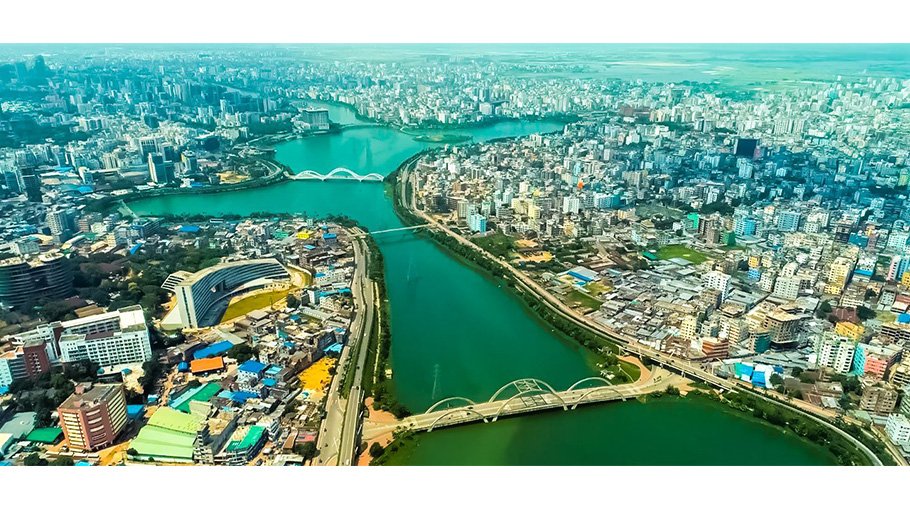Maintain status quo on Hatirjheel structures: SC

The Appellate Division of the Supreme Court has directed the authorities concerned to maintain status quo on a High Court verdict over evicting business structures in Hatirjheel-Begunbari project in the capital.
A five-member bench of the Appellate Division headed by Chief Justice Hasan Foez Siddique issued the order on Monday (November 7) following a leave to appeal petition filed by Rajdhani Unnayan Kartripakkha (Rajuk) challenging the HC verdict.
Other judges of the bench are Justice Md Nuruzzaman, Justice Obaidul Hassan, Justice Borhanuddin and Justice M Enayetur Rahim.
The apex court also set the petition for hearing at the top on the serial.
Following the SC order, no structure can be evicted from Hatirjheel project until its further order, Rajuk's lawyer Imam Hasan and writ petitioner's lawyer Manzill Murshid.
On June 30 in 2021, the High Court had delivered a verdict to this issue following a writ petition filed by lawyer Ripan Barai on behalf of Human Rights and Peace for Bangladesh. He filed the writ petition on September 9 in 2018. The petition challenged the legality of the construction work there.
On May 24 this year, the HC released the full text of the verdict declaring Hatirjheel-Begunbari project as a ‘Public Trust Property’.
In the 55-page full text verdict, the court directed the government to evict all business structures within the project in 60 days, cancelling the allotment of all hotels, restaurants, and other commercial establishments in the Hatirjheel-Begunbari project area.
The higher court also directed that the water taxi service currently in operation be stopped.
Delivering the verdict, the High Court bench of Justice Md Ashraful Kamal and Justice Rajik Al Jalil asked the Rajuk and others concerned to implement the order.
The higher court also suggested forming a ‘Hatirjheel Lake Preserve, Development and Management Authority’ under the direct supervision of the Prime Minister's Office (PMO) in order to preserve, develop, and operate the Hatirjheel-Begunbari project.
It also suggested appointing BUET's engineering department and the 24th Engineering Construction Brigade of the Bangladesh Army as permanent consultants for the project. It asked that international standard underground public toilets and potable water be arranged in the project area for people to use.
Rajuk was inactive even though illegal establishments outside the original plan of Hatirjheel were springing up and flourishing.
Under these circumstances, Human Rights and Peace for Bangladesh (HRPB), a rights organisation, filed the writ petition with the High Court as public interest litigation.



